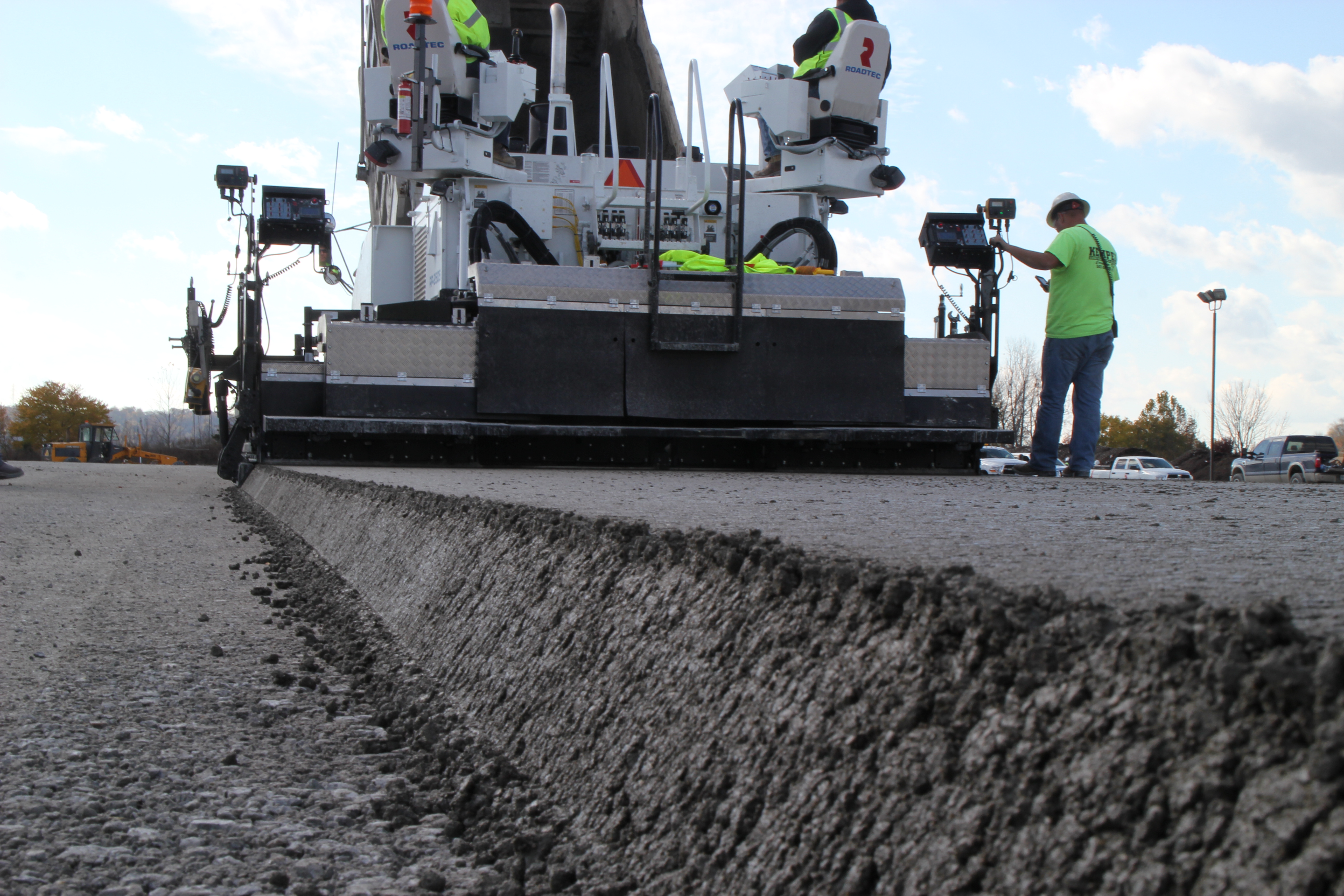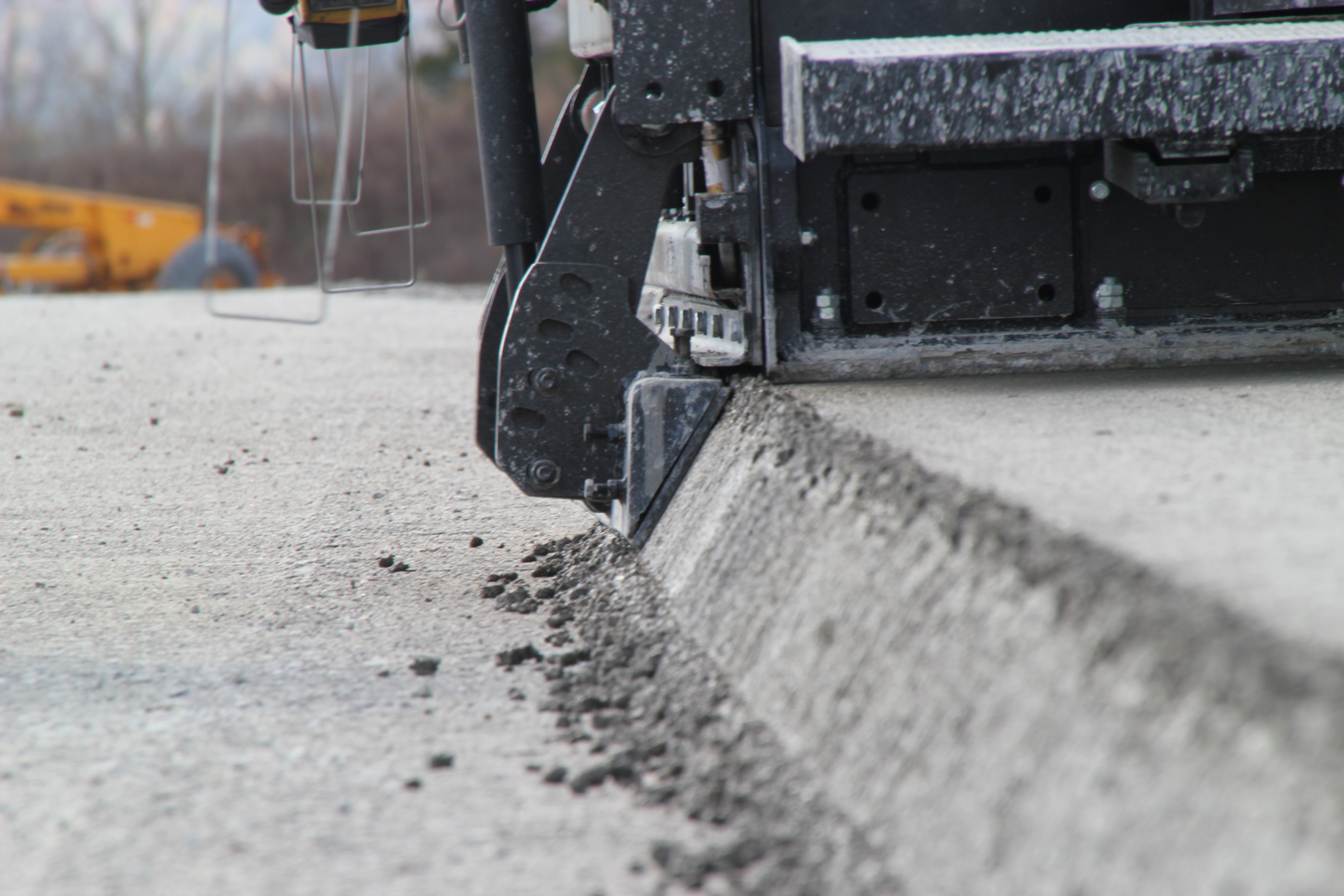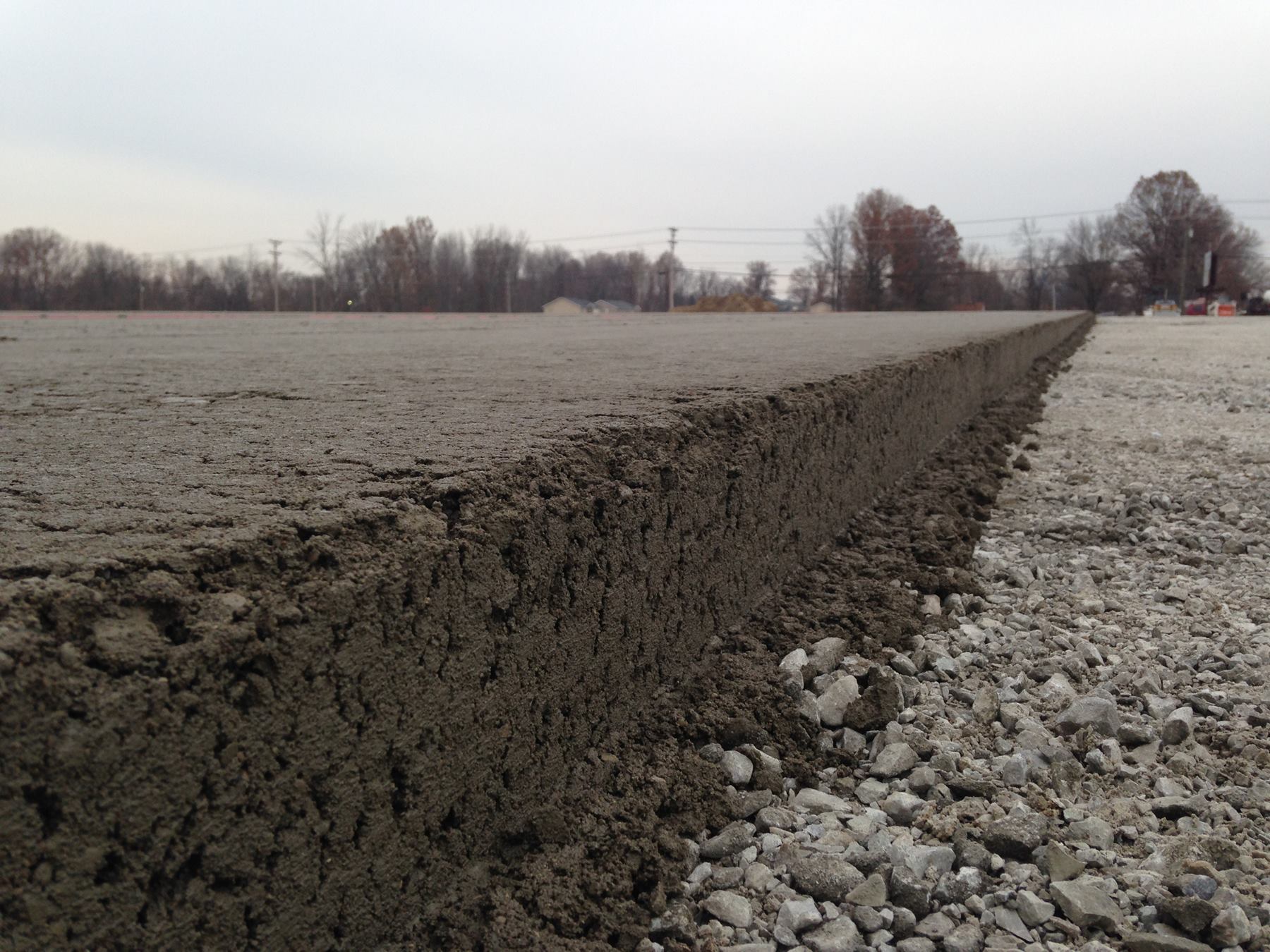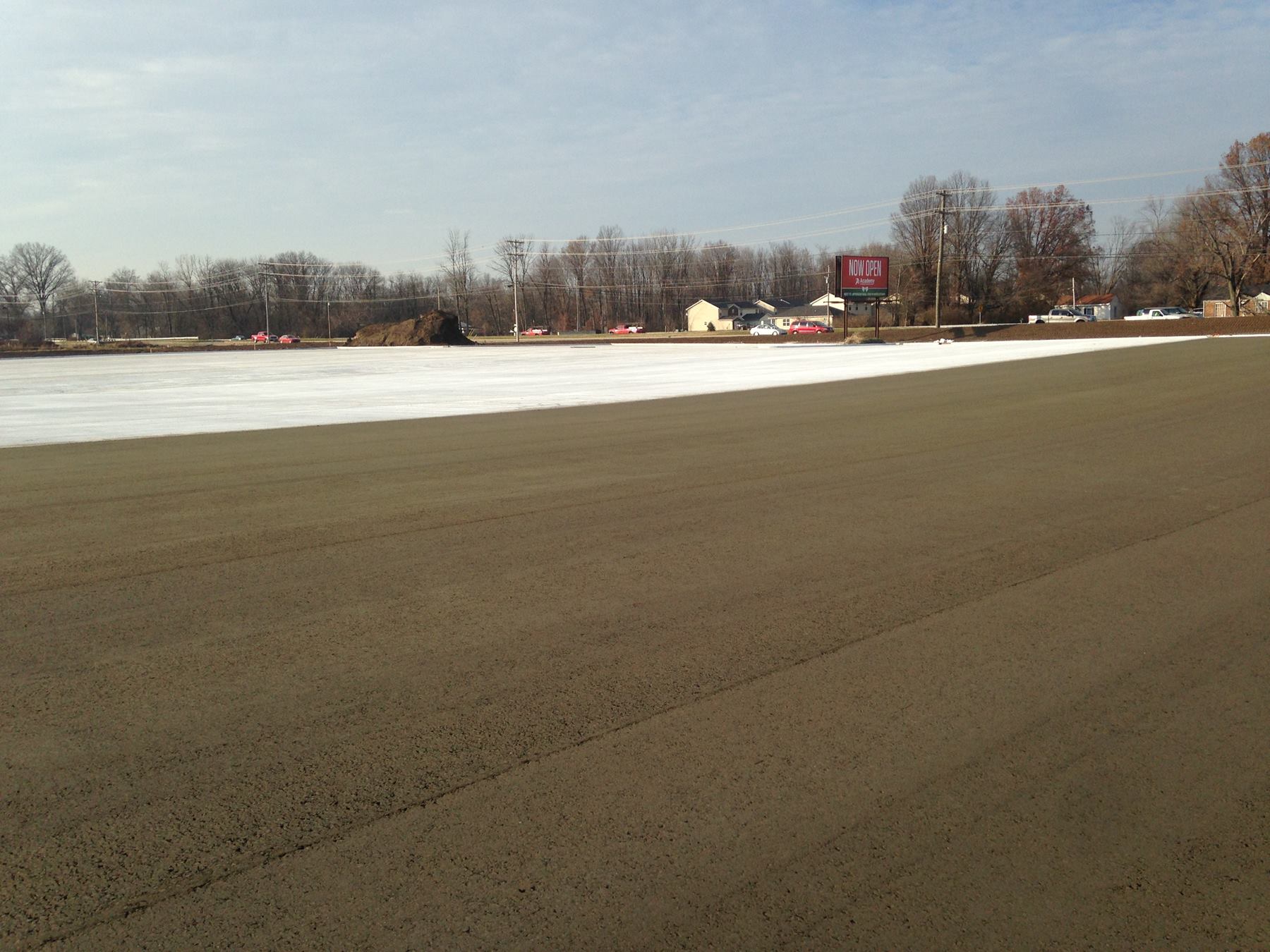Kemper Construction is one of only a handful of companies in the nation that offers Roller Compacted Concrete services. With 12 years of service in the roller compacted concrete industry, expertise makes this new form of concrete a great alternative. Our employees continuously trained in the latest technics of this specialized industry through company training as well as attending state and national conferences. We strive to keep our product above others by investing in state of the art equipment reserved for use only on RCC jobs along with offering customized RCC mixes designed to meet your specific site needs.
What is Roller Compacted Concrete?
Just as the name indicates roller compacted concrete uses modified asphalt rollers to consolidate a concrete mixture; similar to that of regular concrete into a durable surface. The American Cement Manufacturers describes the similarities of RCC to conventional concrete by explaining it “…has the same basic ingredient as conventional concrete: cement, water, and aggregates, such as gravel or crushed stone. But unlike conventional concrete, it’s a drier mix—stiff enough to be compacted by vibratory rollers.” This variation of concrete often has compressible strengths greater than 4,000 psi.





